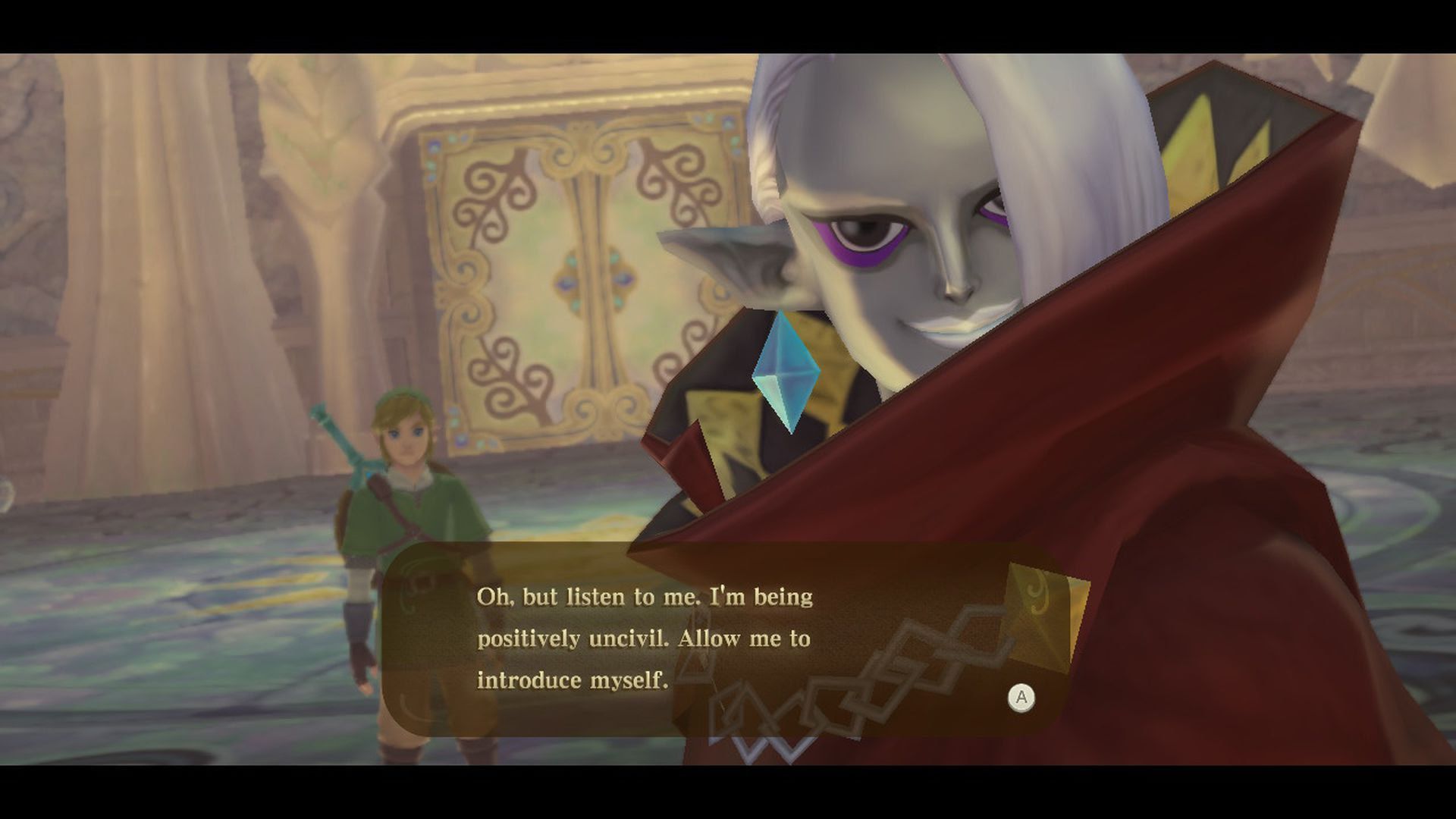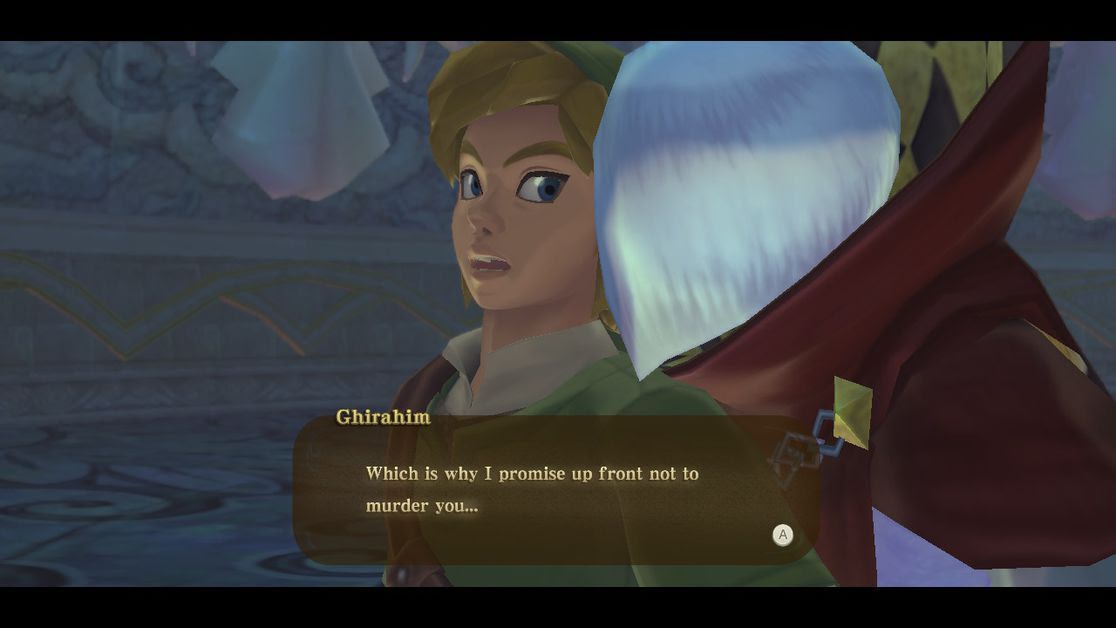Nintendo’s "queer-coded" villain divides gamers' opinions
Add Axios as your preferred source to
see more of our stories on Google.

Screenshot: Nintendo
The summer remake of 2011’s “The Legend of Zelda: Skyward Sword” has spurred new reactions to the game’s lead villain, Ghirahim, who some players and critics regard as homophobic.
Why it matters: The mixed feelings about Ghirahim go beyond whether “Zelda” players think the character is interesting or offensive but whether queer gamers, specifically, want to reject or reclaim him.
The details: Ghirahim is, in gaming parlance, a “boss” character — a powerful enemy who encounters series hero Link several times in the popular adventure.
- He wears tight, revealing clothes, an earring and what appears to be eyeshadow and lipstick, sporting a look and demeanor described as “fabulous,” by one queer critic of the game.
- He taunts Link at the start of their encounters, sneaking behind him during their first meeting and flicking his tongue, asking Link if his well-toned body leaves the hero “breathless” in another.
What they’re saying: “It feels like the character is fully built around the concept of gay panic,” one longtime “Zelda” fan told Axios.
- They view those scenes of Ghirahim sneaking up on Link as designed to make the presumed cis straight player uncomfortable.
- “As a queer person, I find the character to be solidly homophobic.”

The big picture: Nintendo declined to comment about Ghirahim to Axios, but the generally beloved gaming giant has a history of regressive themes appearing in the corners of its games.
- In 2014, it failed to enable gay relationships in its social simulation game “Tomodachi Life,” and later apologized for it.
- In 2016, it altered a criticized scene for the Western version of one of its games in order to avoid, in its own statement’s words, “expression which might be considered as gay conversion or drugging that occurs between characters.”
- The lauded 2017 adventure “The Legend of Zelda: Breath of the Wild,” included what some viewed as an insensitive scene about Link crossdressing, though some fans embraced that and celebrated the hero’s “beautiful” new look.
“I’m very much of two minds about Ghirahim,” said Kotaku managing editor Carolyn Petit, who in 2019 made a video critiquing the character.
- On the one hand, she said, characters like him “reinforce the idea that queerness, and queer people, are inherently dangerous and disruptive to the social order.”
- On the other: “I think for some of us, there’s a desire to reclaim these characters, perhaps because many of us have had so few other representations for so much of our lives, and maybe also because, in a strange sense, we can relate to them.”
- “The world often tells us that we’re aberrant. ... So when a character like Ghirahim comes along who wants to tear down the current order, there’s a part of me that wants to root for him."
